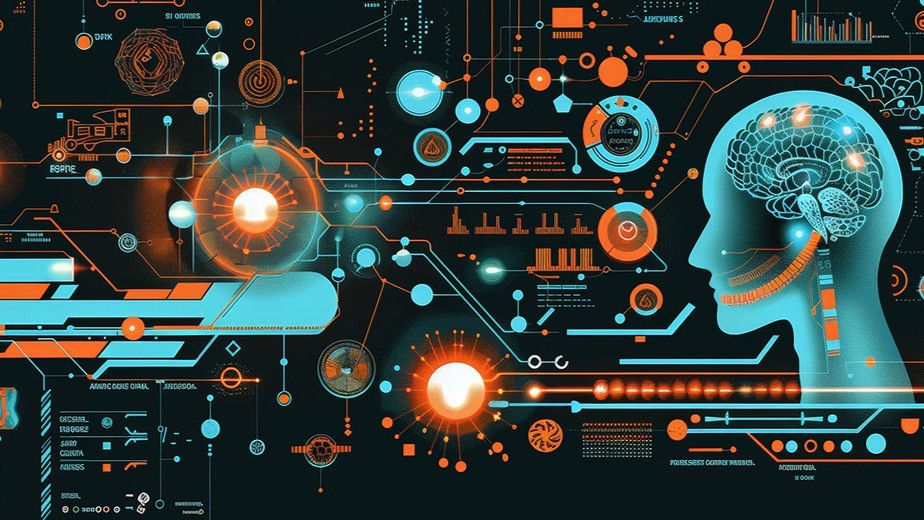The year 2025 is shaping up to be a pivotal moment in the story of technology. With breakthroughs in artificial intelligence, renewable energy, biotechnology, and space exploration, the global tech industry is driving changes that touch nearly every aspect of human life. The world is more connected than ever before, but this interconnectedness also brings challenges such as cybersecurity threats, digital inequality, and questions about privacy. As technology continues to advance at an unprecedented pace, societies across the globe are forced to adapt while also navigating the risks that come with rapid innovation.
Artificial intelligence remains at the forefront of this transformation. In 2025, AI is no longer just a tool for automating simple tasks; it has become a decision-making partner in industries like healthcare, finance, education, and logistics. Hospitals now use AI to diagnose diseases with greater accuracy than ever before, while financial institutions rely on AI algorithms to detect fraud and predict market trends. Education systems are adopting personalized AI tutors that adjust learning materials to suit each student’s pace and style. While these advancements promise efficiency and progress, they also raise ethical concerns about data privacy, surveillance, and job displacement. Global debates about the limits of AI continue to dominate news coverage, as governments and tech companies struggle to find a balance between innovation and responsibility.
The rise of renewable energy technologies is another defining trend of 2025. Solar, wind, and hydrogen power are no longer experimental but have become mainstream sources of energy in many countries. This shift is essential for tackling climate change, as global demand for clean energy grows rapidly. Advances in battery storage have made renewable power more reliable, while smart grids allow efficient energy distribution. At the same time, nations still dependent on fossil fuels face economic and political challenges as the global energy landscape shifts. News outlets frequently highlight the tension between progress toward sustainability and the resistance of industries and governments tied to traditional energy sources.
Biotechnology has also entered a new phase in 2025, with innovations that affect healthcare, agriculture, and even environmental conservation. Gene editing tools such as CRISPR are being used to treat previously incurable diseases and develop crops resistant to climate stress. Scientists are exploring bioengineered solutions to environmental problems, such as bacteria designed to clean up oil spills or plastic waste. While these developments inspire hope, they also spark ethical debates about the limits of human intervention in nature. The global news media regularly covers these stories, showing both the promise and the controversies surrounding biotechnology.
Space exploration is another area where technology is pushing boundaries in 2025. Private companies like SpaceX and Blue Origin are competing with national space agencies to make space travel more affordable and accessible. Missions to Mars, lunar colonies, and satellite mega-constellations dominate headlines. Space technology is not only about exploration but also about economic opportunities, as industries from telecommunications to mining prepare for a new era of space-based commerce. However, concerns about space debris, militarization, and international competition add complexity to this new frontier.
Cybersecurity has become one of the most pressing issues of 2025. With increasing dependence on digital infrastructure, cyberattacks have the potential to cripple economies, disrupt governments, and threaten national security. From ransomware attacks on corporations to hacking campaigns targeting elections, cybersecurity threats dominate global news. Nations are investing heavily in defense systems, while individuals and businesses struggle to protect their data. The balance between digital convenience and security continues to be a major challenge for societies worldwide.
Technology has also reshaped work and communication. The remote work revolution that began during the pandemic years has evolved into a hybrid model that blends office and home environments. Tools like virtual reality meeting spaces and AI-driven productivity apps are now standard in many industries. While this provides flexibility and efficiency, it also blurs the line between work and personal life. Workers face new pressures, and employers grapple with maintaining culture and collaboration in a decentralized environment. These changes reflect the broader question of how technology affects human well-being in both positive and negative ways.
The global divide in access to technology remains a critical issue in 2025. While advanced nations adopt cutting-edge innovations, billions of people around the world still lack reliable internet, digital literacy, or affordable devices. This inequality risks widening economic and social gaps, creating a two-tiered world where some thrive in the digital age while others are left behind. International organizations and governments are under pressure to address this digital divide, recognizing that global stability and progress depend on inclusive access to technology.
Consumer technology continues to evolve rapidly, shaping how people live, shop, and entertain themselves. Smart homes, wearable health trackers, and immersive entertainment systems are more common than ever. The rise of the metaverse has created new forms of social interaction and business opportunities, though it also raises questions about addiction, mental health, and data security. The tech industry continues to influence global culture, with product launches from major companies like Apple, Samsung, and Microsoft becoming worldwide events covered extensively by the media.
Ethical questions run through every aspect of technological development. Who controls AI algorithms? How much personal data should companies collect? What happens when jobs are replaced by automation? How do we ensure equitable access to digital opportunities? These are the debates shaping public discourse in 2025, as societies strive to harness the benefits of technology without losing sight of human values.
FAQs
What is the most significant technological trend of 2025?
Artificial intelligence remains the most transformative technology, reshaping industries from healthcare to finance, while raising ethical and economic challenges.
How is technology addressing climate change?
Renewable energy technologies like solar, wind, and hydrogen, combined with advances in battery storage and smart grids, are helping reduce reliance on fossil fuels.
What role does biotechnology play in 2025?
Biotechnology is driving medical breakthroughs, climate-resilient agriculture, and environmental cleanup efforts, though it sparks ethical debates about human intervention.
Why is cybersecurity so important now?
With societies more reliant on digital systems, cyberattacks have the potential to disrupt economies, governments, and personal lives, making cybersecurity a top priority.
Is the digital divide still a major issue?
Yes, despite advances, billions of people remain excluded from the benefits of technology, creating risks of deepening global inequality.
Conclusion
Technology in 2025 is a double-edged sword. It offers groundbreaking solutions to humanity’s most pressing challenges, from healthcare to climate change, while also creating new risks in the form of cyberattacks, inequality, and ethical dilemmas.
The story of technology this year is not just about gadgets or innovation but about how societies adapt to rapid change, balance progress with responsibility, and ensure that the benefits of innovation are shared widely. In this critical moment, technology remains both a driver of hope and a source of caution, shaping the world in ways that will define the decades to come.






